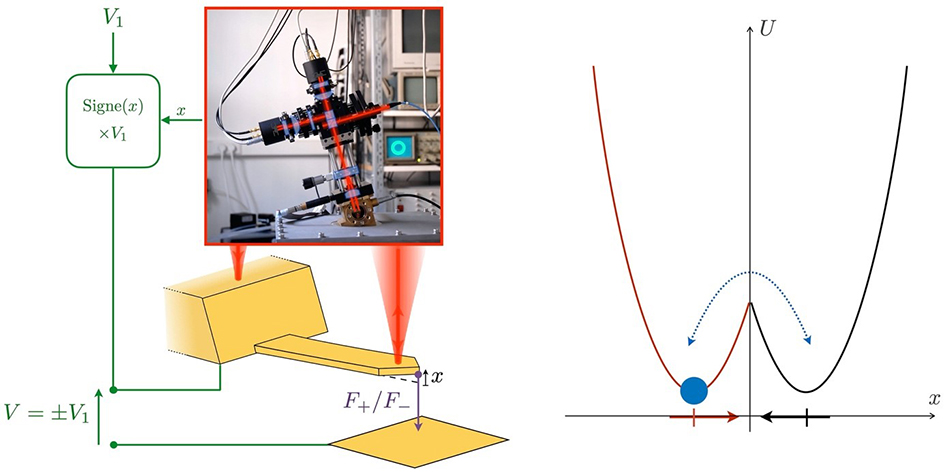Publication of the LPENSL in the journal Physical Review Letters on February 17, 2022. CNRS-INP communication on April 11, 2022.
Using a double-well potential as a physical memory, we study with experiments and numerical simulations the energy exchanges during erasure processes, and model quantitatively the cost of fast operation. Within the stochastic thermodynamics framework we find the origins of the overhead to Landauer’s bound required for fast operations: in the overdamped regime this term mainly comes from the dissipation, while in the underdamped regime it stems from the heating of the memory. Indeed, the system is thermalized with its environment at all times during quasistatic protocols, but for fast ones, the inefficient heat transfer to the thermostat is delayed with respect to the work influx, resulting in a transient temperature rise. The warming, quantitatively described by a comprehensive statistical physics description of the erasure process, is noticeable on both the kinetic and potential energy: they no longer comply with equipartition. The mean work and heat to erase the information therefore increase accordingly. They are both bounded by an effective Landauer’s limit kBTeffln2, where Teff is a weighted average of the actual temperature of the memory during the process.

Reference: Dynamics of information erasure and extension of Landauer's bound to fast processes. S. Dago et L. Bellon, Physical Review Letters, February 17, 2022.
DOI : https://doi.org/10.1103/PhysRevLett.128.070604
Open-access: HAL et ArXiv






